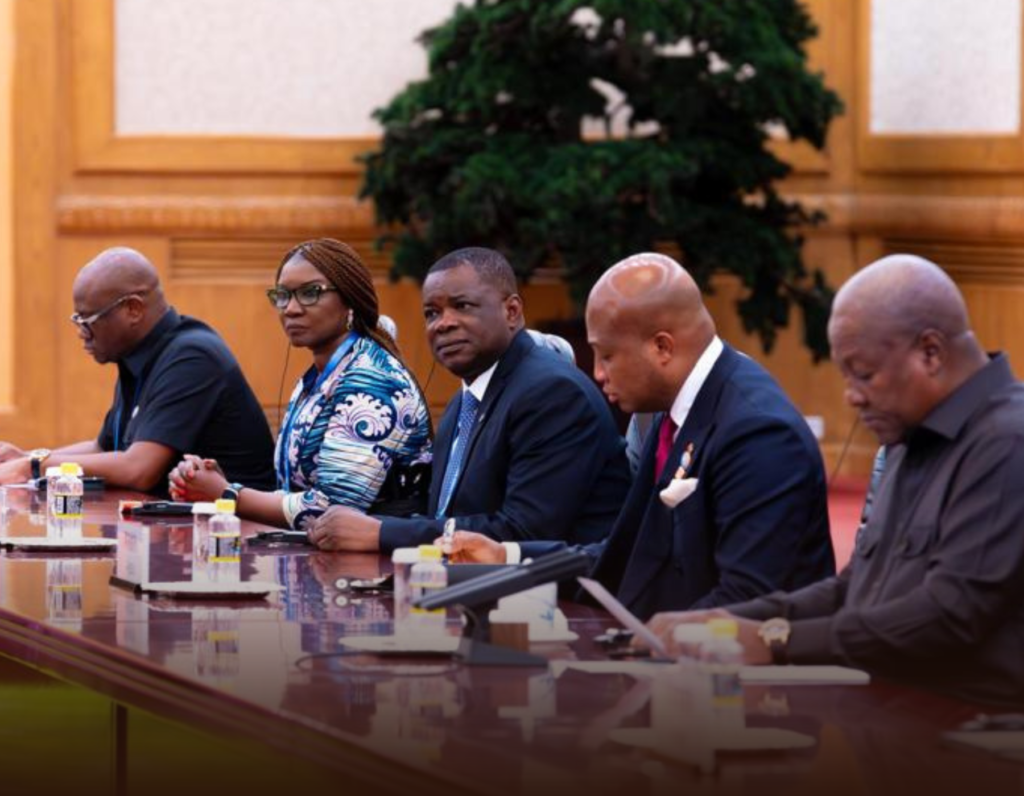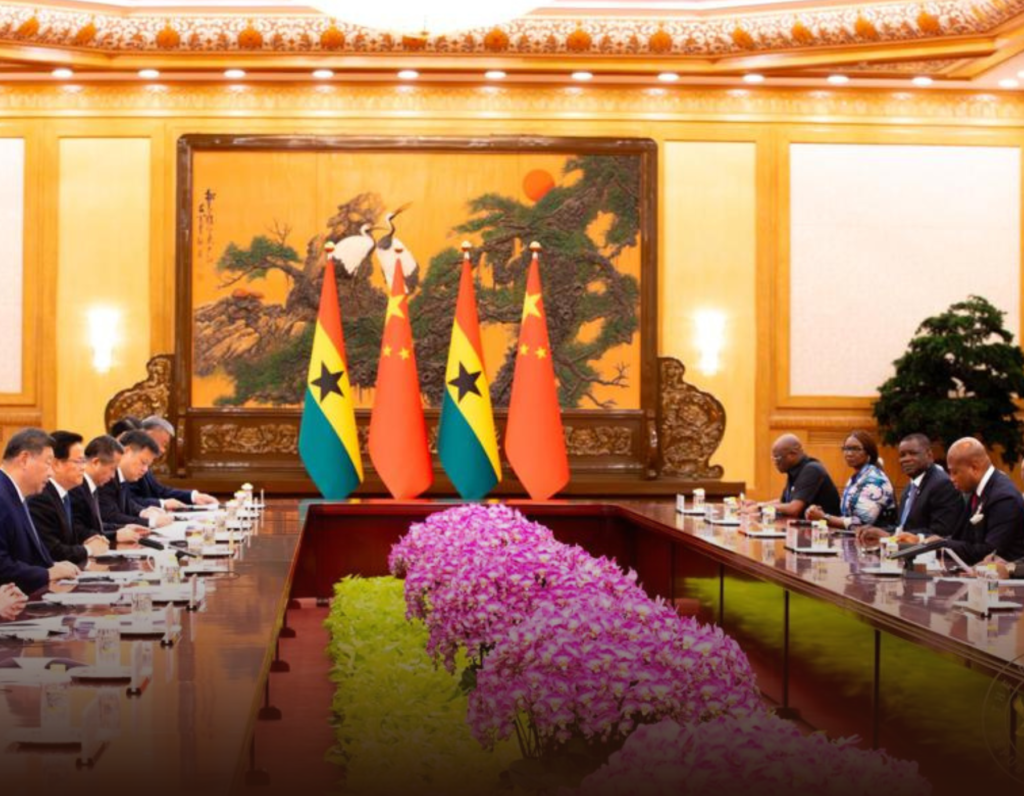China has committed an additional ¥200 million (Chinese yuan) in funding for two significant Ghanaian infrastructure projects – the Aflao Market complex and the National Theatre renovation. President John Dramani Mahama made the announcement during his visit to Beijing, describing the gesture as a reaffirmation of Ghana–China solidarity and mutual development partnership.
According to President Mahama, the new grant supplements earlier Chinese support and ensures that both projects will progress without funding bottlenecks. He stated that Ghana and China share a relationship that extends beyond mere investment, rooted in trust, shared vision, and collaborative growth. The President thanked his Chinese counterparts for their continuing support and emphasized Ghana’s commitment to ensuring that these projects benefit local communities and the national economy.
The Aflao Market complex, located in Ghana’s Volta Region near the Togo border, plays a critical role in cross-border trade and regional commerce. Renewal and expansion of the market, pending earlier Chinese financing are expected to modernize trading facilities, improve security, and increase revenue generation.
Meanwhile, the National Theatre project in Accra is central to Ghana’s cultural infrastructure; its rehabilitation, aided by Chinese funds, aims to restore the theatre’s role as a hub of arts, performance, and national identity.
Chinese financial involvement in Ghana has grown notably in recent years. Earlier in 2024–25, China extended major support for Ghanaian infrastructure including clean energy, road construction, and industrial parks. The additional ¥200 million for Aflao and the National Theatre builds on that trajectory and signals China’s sustained interest in Ghana’s domestic development agenda.

In prior engagements, Chinese grant assistance has facilitated projects such as the Bui Hydroelectric Project, financed under Chinese concessional terms and implemented by Sinohydro, which greatly expanded Ghana’s water-power capacity. Chinese firms have also constructed the Kpong Water Supply Expansion and various road segments under the Ghana–China partnership, giving the relationship a diversified footprint across infrastructure and utilities.
At a time when Ghana is aggressively pursuing industrialization under the Ghana Beyond Aid agenda, Chinese funding helps forestall delays in key public works and ensures that strategic nodes – markets and cultural institutions receive necessary capital. Analysts suggest that the grant is not just a gift but a signal of confidence in Ghana’s governance and capacity to manage large-scale public projects.
Still, success will depend on implementation. Observers caution that timely procurement, compliance with international procurement standards, community engagement, and transparent oversight will be critical to turning the allocated funds into lasting infrastructure that delivers value. Ghanaian civil society groups have called for clarity in the contracts and clear timelines to ensure accountability.
The additional Chinese support reflects a broader theme in Ghana–China relations: expanding cooperation beyond major infrastructure toward inclusive national development, urban renewal, and cultural heritage. As the Aflao Market and National Theatre projects move forward, both nations have an opportunity to showcase development rooted in shared vision and sustainable partnership.
With the first tranche now secured, President Mahama and his Chinese counterparts appear ready to deepen their developmental alliance, expecting that the flows of capital, expertise, and mutual trust will continue to underpin Ghana’s journey toward growth, modernization, and prosperity.




